The 18th CREST Open Workshop
Managing and Optimising Multiplicity Computing
Date: 22 - 23 March 2012
Venue: Engineering Front Executive Suite, Roberts Building, UCL (Directions, or 'C5' on the map here, or Find it on Google maps.)
New technologies have recently emerged to challenge the very nature of computing: multicore processors, virtualised operating systems and networks, and data-centre clouds. Taken together, these technologies are providing an explosive growth in the computational, communication and storage resources available to application developers. But how can applications best take advantage of this new "multiplicity" of resources? The currently popular approaches generally seek to maximise some form of parallelism. This has led to a renewed interest in parallelising compilers and functional languages, and to the development of large-scale, coarse-grained parallel data-processing systems, such as MapReduce, Hadoop, and Dryad.
However, we have see an approaching plateau, where applications will no longer benefit from the availability of ever more resources unless those applications undergo a fundamental reconceptualization. Moreover, the vast majority of applications are inherently not data parallel, which means that currently they get little or no benefit from an increase in resources. This effect will be mirrored in the software engineering techniques intended to develop and support these applications; the utility and viability of current techniques are threatened by the sheer scale to which the platform is expected to evolve. This multiplicity computing problem motivates the search for commonalities between languages, methods and approaches. We need techniques that can bring the benefits of arbitrarily rich resources to a far greater number of applications. This workshop will bring together researchers working on techniques for handling distributed computation at every scale of abstraction to discuss recent results and the intellectual agenda of multiplicity computing.
Programme (Downloadable programme in PDF)
+++++++++22 March 2012 – DAY 1+++++++++
10:00 Arrival, Coffee and Pastries
10:30 Welcome and Introductions (Video, Introduction)
Mark Harman, CREST Centre, SSE Group, Department of Computer Science UCL, UK
11:15 Multiplicity Computing: Engineering Software for Performance, Security, and Robustness (Slides, Video)
Alexander Wolf, Department of Computing, Imperial College London, UK
11.45 Discussion: establishing terms and goals.
12.00 From boolean to quantitative theories of software systems (Slides)
Thomas Henzinger, Institute of Science and Technology (IST), Austria
12:30 Building a Multiscale Data Processing Appliance (Slides)
Gustavo Alonso, ETH, Zurich, Switzerland
13:00 Sandwich lunch at the venue
14:00 Extreme Specialization (Slides, Video)
Steven Hand, University of Cambridge Computer Laboratory, UK
14:30 Actor Programming Languages for Scalable Parallel and Distributed Systems
Gul Agha, Department of Computer Science, University of Illinois, USA
15.00 Refreshments
15:30 Working Title: Genetic Improvement as a Means of Achieving Diversity (Slides, Video)
Bill Langdon, CREST Centre, SSE Group, Department of Computer Science UCL, UK
16:00 Automatic Workarounds: Exploiting the Intrinsic Redundancy of Software to Improve Reliability (Slides, Video)
Antonio Carzaniga, Faculty of Informatics, University of Lugano, Switzerland
16.30 Safe Software Updates via Multi-Version Execution (Slides)
Cristian Cadar, Department of Computing, Imperial College London, UK
17.00 Discussion: SBSE and testing for Multiplicity and Diversity
Mark Harman, CREST Centre, SSE Group, Department of Computer Science UCL, UK
18.00 Wrap up
18.15 Light Dinner at the venue
+++++++++23 March 2012 – Day 2+++++++++
9:30 Arrival, Coffee and Pastries
10:00 Perspectives on Multiplicity Computing (Slides, Video)
Joe Sventek, Department of Computing Science, University of Glasgow, UK
10:30 Multicore Software Engineering: Perspectives For The Next Decade
Victor Pankratius, Karlsruhe Institute of Technology, Germany
11:00 Bottom-Up Cloud Optimization using Control Theory (Video)
Jeremy Singer, Computing Sciences, University of Glasgow, UK
11:30 Refreshments
12:00 Working Title: SBSE on Multiple cores (Slides, Video)
Enrique Alba, Department of Computer Science, University of Málaga, Spain
12:30 Evolutionary Algorithms facing large-scale computing
Marc Schoenauer, INRIA Saclay - Île-de-France, Université Paris Sud, France
13:00 Sandwich lunch at the venue
14:00 A search based approach for security testing (Slides, Video)
Mariano Ceccato, FBK (Fondazione Bruno Kessler), Italy
14:30 Searching for Diverse Software Engineering Solutions (Slides, Video)
Robert Feldt, Department of Computer Science and Engineering, Chalmers University of Technology, Sweden
15:00 Multiple Views of Multiplicity Computing: Opportunities Viewed through a Cyber-Security Lens (Slides, Video)
Richard Schantz, The Distributed Systems Technology Group, BBN Technologies, USA
15.30 Refreshments
16:00 Discussion: Next steps for Multiplicity Computing
Alexander Wolf, Department of Computing, Imperial College London, UK
16.45 Wrap up
17.15 Close
Photos:
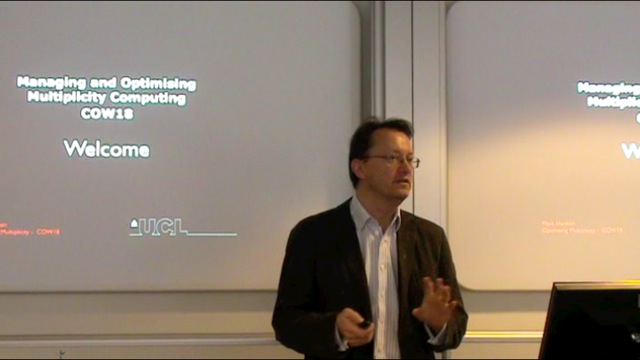
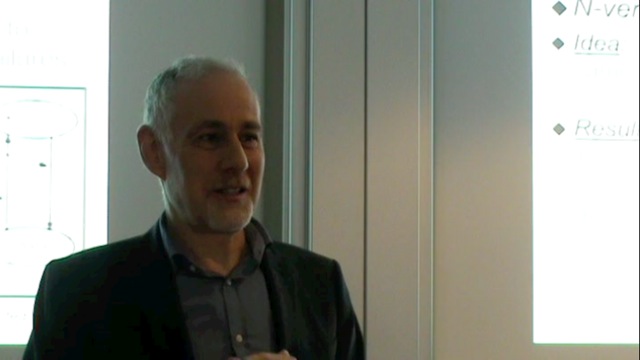
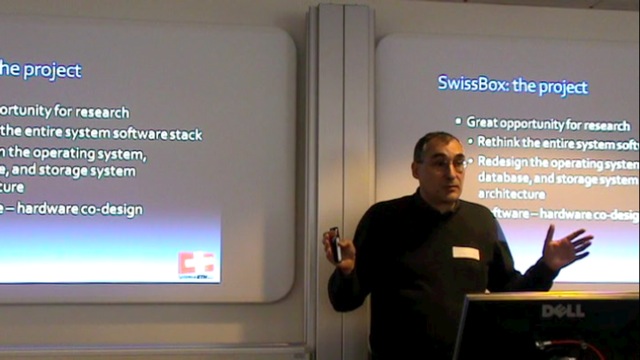
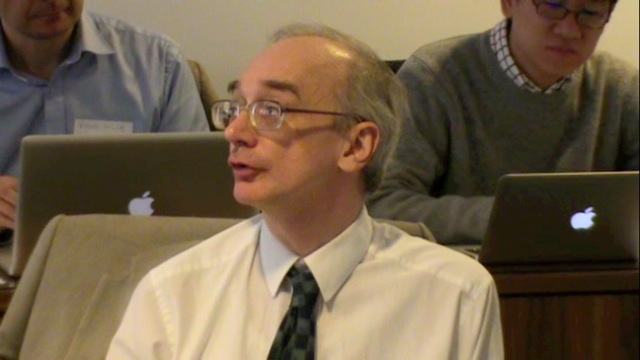
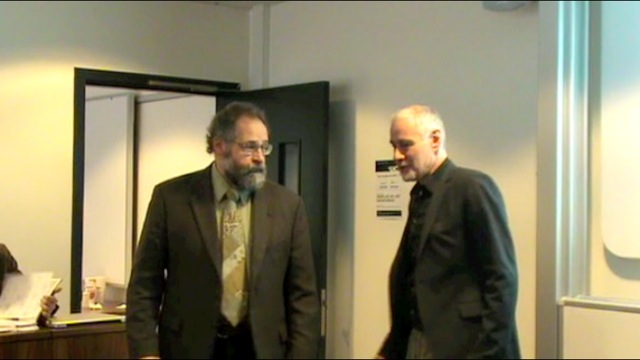
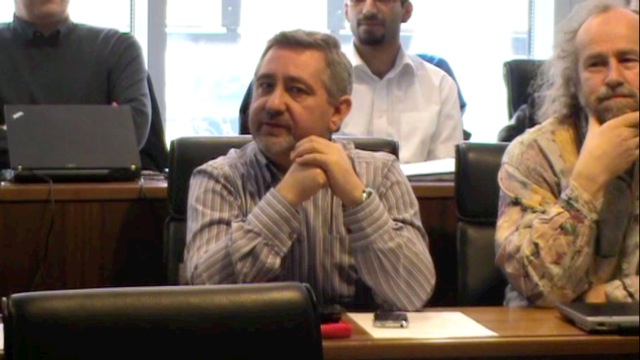
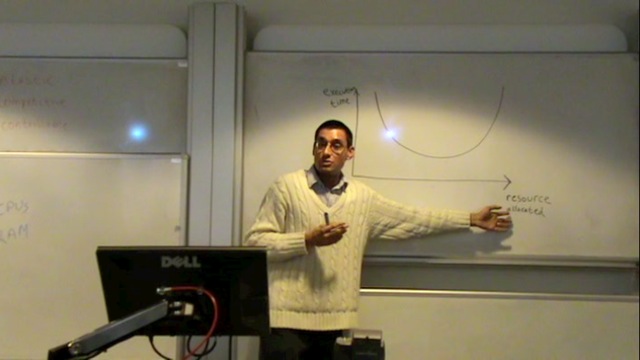
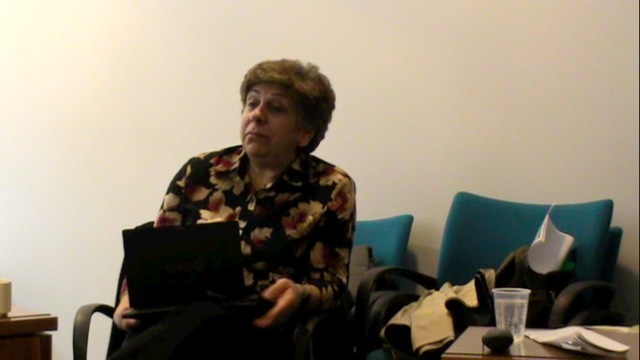
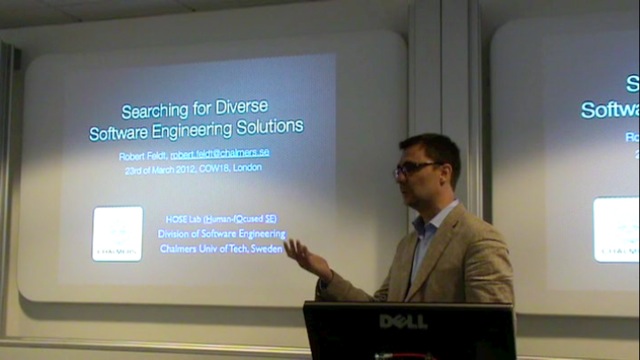
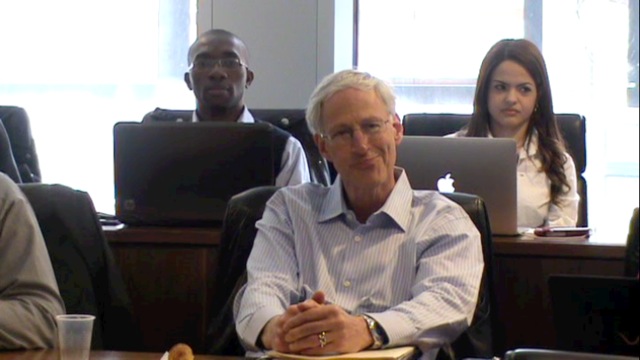
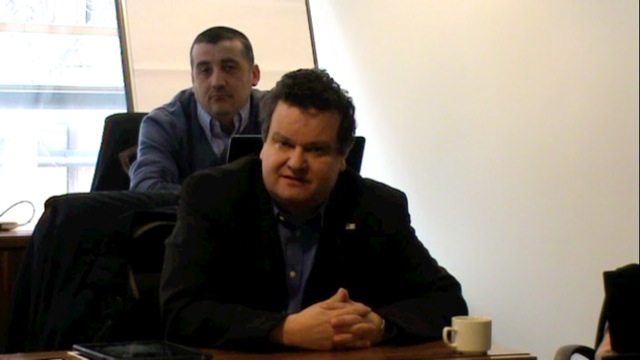
This workshop is supported by the following sponsors:
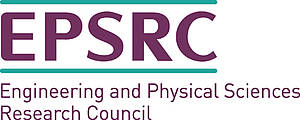 | |
|---|
Registered Attendees: REGISTRATION FOR THIE COW IS NOW CLOSED!
- Gul Agha, Department of Computer Science, University of Illinois, USA
- Enrique Alba, Department of Computer Science, University of Málaga, Spain
- Gustavo Alonso, ETH, Zurich, Switzerland
- Mustafa Bozkurt, CREST Centre, SSE Group, Department of Computer Science, UCL, UK
- Cristian Cadar, Department of Computing, Imperial College London, UK
- Mariano Ceccato, FBK (Fondazione Bruno Kessler), Italy
- Antonio Carzaniga, Faculty of Informatics, University of Lugano, Switzerland
- Paolo Costa, Department of Computing, Imperial College London, UK
- Larissa Cristina dos Santos Romualdo, Department of Computer Science, UCL, UK
- Mateusz Dykiert, CREST Centre, SSE Group, Department of Computer Science, UCL, UK
- Paolo Falcarin, School of Architecture, Computing and Engineering (ACE), University of East London, UK
- Funmilade Faniyi, School of Computer Science, University of Birmingham, UK
- Pooyan Farahani, Trinity Mirror Group, Imperial College London, UK
- Robert Feldt, Department of Computer Science and Engineering, Chalmers University of Technology, Sweden
- Steven Hand, University of Cambridge Computer Laboratory, UK
- Mark Harman, CREST Centre, SSE Group, Department of Computer Science, UCL, UK
- Thomas Henzinger, Institute of Science and Technology (IST), Austria
- Tamas Jambor, Department of Computer Science, UCL, UK
- Yue Jia, CREST Centre, SSE Group, Department of Computer Science, UCL, UK
- Mariam Kamkar, Department of Computer and Information Science, Linköping University, Sweden
- Jens Krinke, CREST Centre, SSE Group, Department of Computer Science, UCL, UK
- Jagun Kwon, Department of Computer Science, UCL, UK
- Bill Langdon, CREST Centre, SSE Group, Department of Computer Science, UCL, UK
- Anne Meade, The Irish Software Engineering Research Centre, University of Limerick, Ireland
- Qasim Nasar-Ullah, Department of Computer Science, UCL, UK
- Viktor Pankratius, Karlsruhe Institute of Technology, Germany
- Jian Ren, CREST Centre, SSE Group, Department of Computer Science, UCL, UK
- Richard Schantz, The Distributed Systems Technology Group, BBN Technologies, USA
- Nahid Shahmehri, Department of Computer and Information Science, Linköping University, Sweden
- Chris Simons, Department of Computer Science and Creative Technologies, University of the West of England, UK
- Marc Schoenauer, INRIA Saclay - Île-de-France, Université Paris Sud, France
- Jeremy Singer, Computing Sciences, University of Glasgow, UK
- Joe Sventek, Department of Computing Science, University of Glasgow, UK
- Varsha Veerappa, Department of Computing and Communication Technologies, Oxford-Brookes University, UK
- Tiantian Wang, CREST Centre, SSE Group, Department of Computer Science UCL, UK
- David White, Computing Sciences, University of Glasgow, UK
- Alexander Wolf, Department of Computing, Imperial College London, UK
- Shin Yoo, CREST Centre, SSE Group, Department of Computer Science, UCL, UK


